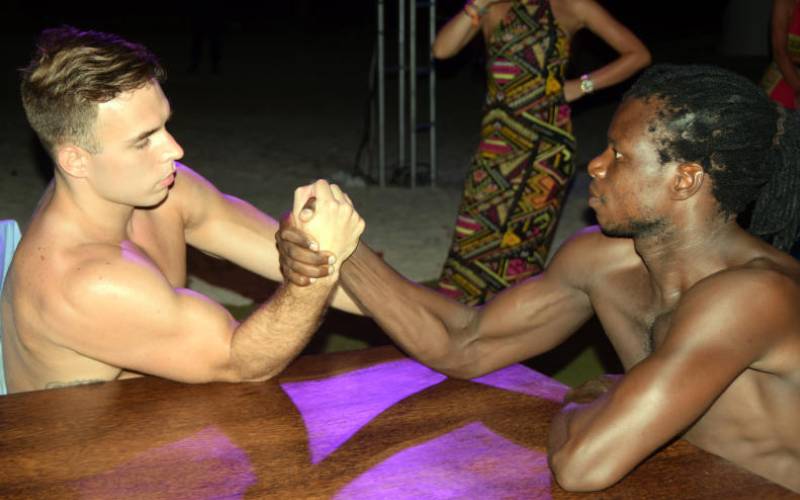
A travel agent Eryck Wikki (left) from Poland in an arm-wrestling contest with Robert Charo (right). [File, Standard]
Last week in this space, we joined the unhappy choruses of alarmed observers who have raised concern over the dire plight of boys and men in the hands of powerful and unforgiving pro-women forces pervading the world. Being part of the suffering throng, we can count numerous opportunities in the form of scholarships, contracts, tenders and plum jobs which we lost even before we ‘bid ‘on account of being born male.